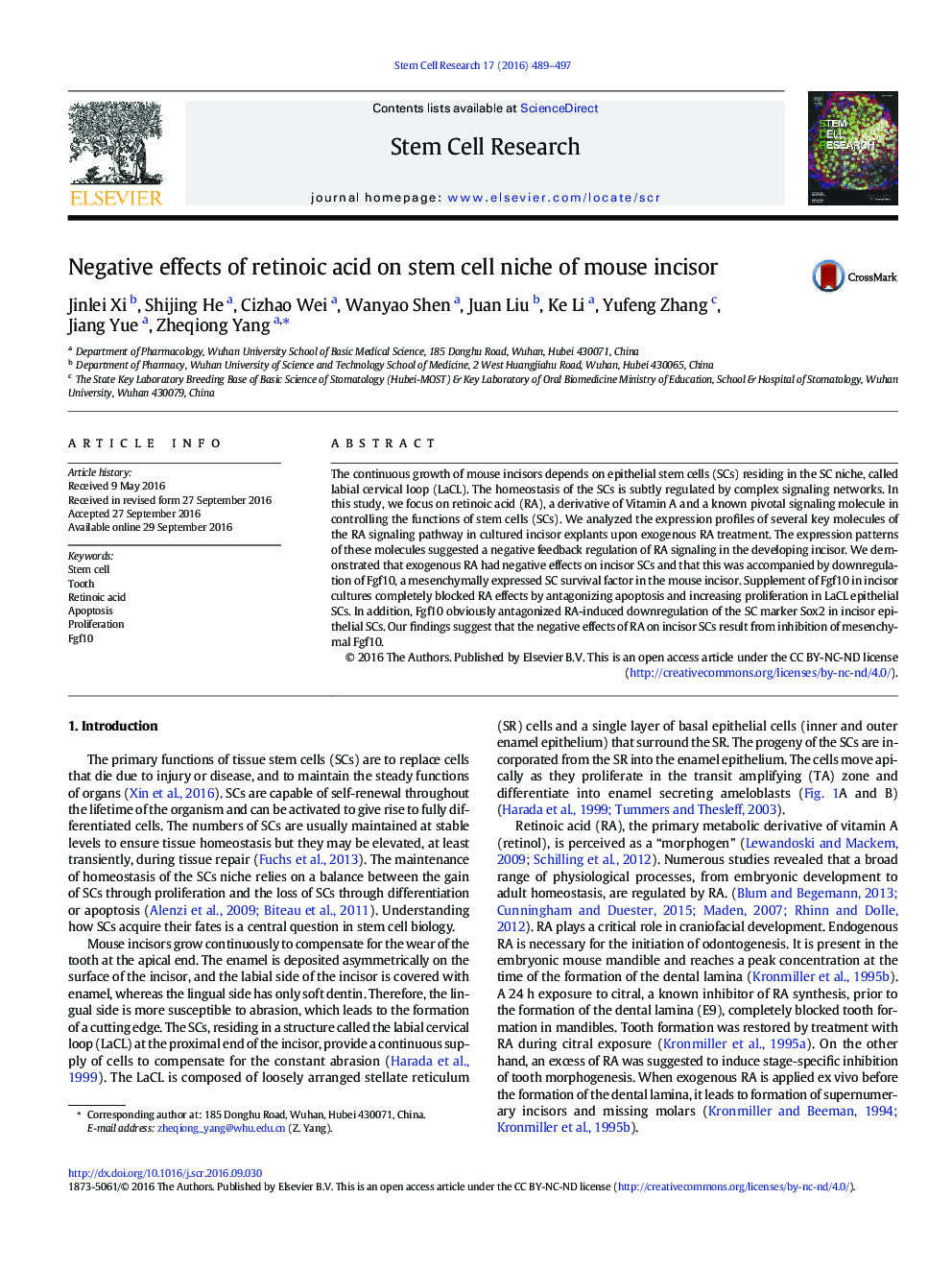| Article ID | Journal | Published Year | Pages | File Type |
|---|---|---|---|---|
| 5522757 | Stem Cell Research | 2016 | 9 Pages |
•Exogenous retinoic acid (RA) shows negative effects on incisor stem cells (SCs).•RA induces apoptosis and inhibits proliferation in incisor SCs.•RA effects on incisor SCs are mediated by downregulation of mesenchymal Fgf10.•RA signaling is subject to a negative feedback regulation in developing incisor.
The continuous growth of mouse incisors depends on epithelial stem cells (SCs) residing in the SC niche, called labial cervical loop (LaCL). The homeostasis of the SCs is subtly regulated by complex signaling networks. In this study, we focus on retinoic acid (RA), a derivative of Vitamin A and a known pivotal signaling molecule in controlling the functions of stem cells (SCs). We analyzed the expression profiles of several key molecules of the RA signaling pathway in cultured incisor explants upon exogenous RA treatment. The expression patterns of these molecules suggested a negative feedback regulation of RA signaling in the developing incisor. We demonstrated that exogenous RA had negative effects on incisor SCs and that this was accompanied by downregulation of Fgf10, a mesenchymally expressed SC survival factor in the mouse incisor. Supplement of Fgf10 in incisor cultures completely blocked RA effects by antagonizing apoptosis and increasing proliferation in LaCL epithelial SCs. In addition, Fgf10 obviously antagonized RA-induced downregulation of the SC marker Sox2 in incisor epithelial SCs. Our findings suggest that the negative effects of RA on incisor SCs result from inhibition of mesenchymal Fgf10.
